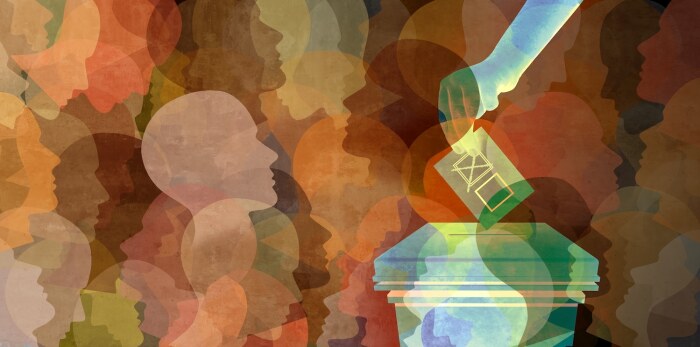Sean Flaherty is an election security advocate and chair of Iowans for Voting Integrity, a grassroots citizen group working for voting systems worthy of the public trust.
For folks now skeptical of democracy:
More democracy in the world = more peace in the world.
It’s not an emotional appeal; it’s an empirical fact.
OK, so it’s not quite that simple, but close:
“To put this number in context, the relationship between democracy and peace is at least five times as robust as that between smoking and lung cancer.”
That quote is from a 2021 paper by political scientists Kosuke Imai and James Lo.
Some of the most robust evidence for any theory in international relations is for democratic peace theory, the finding that democratic countries tend not to fight wars with each other.
There is no consensus about why democratic countries do not fight wars with each other, but the correlation is solid. From Damian Struglinski’s analysis of the causes of war:
Upon analysing the structure and empirical characteristics of the idea it proved difficult to establish a uniform definition of core terms, which proved detrimental to the falsifiability and the supposed parsimony. The theory is however successful in adapting to the realities of the modern world, in spite of the questionable relevance of its intra- and supra-state aspects. Consequences of the normative connotations of the ideals are twofold; it can both facilitate lasting peace and justify war. It has to be noted though, that in the limited scope and with precise definitions the theory seems to be empirically valid to this day.
War plagues the world in this decade, but a worldwide poll by the Open Society Foundation found support for democracy dropping significantly among young people: “The 18-35 cohort recorded higher support for army rule (42 percent) than those aged 36-55 (33 percent) and those aged 56 or above (20 percent). Similarly, 35 percent of this youngest age category was sympathetic to the idea of a strong leader who does away with parliaments and elections. The figures were 32 percent for those aged 36-55 and 26 percent for those aged 56 and above.”
The next time you engage with a young person or anyone who is ho-hum about democracy, remember democratic peace theory.
Top illustration of voting rights concept is by Lightspring, available via Shutterstock.

